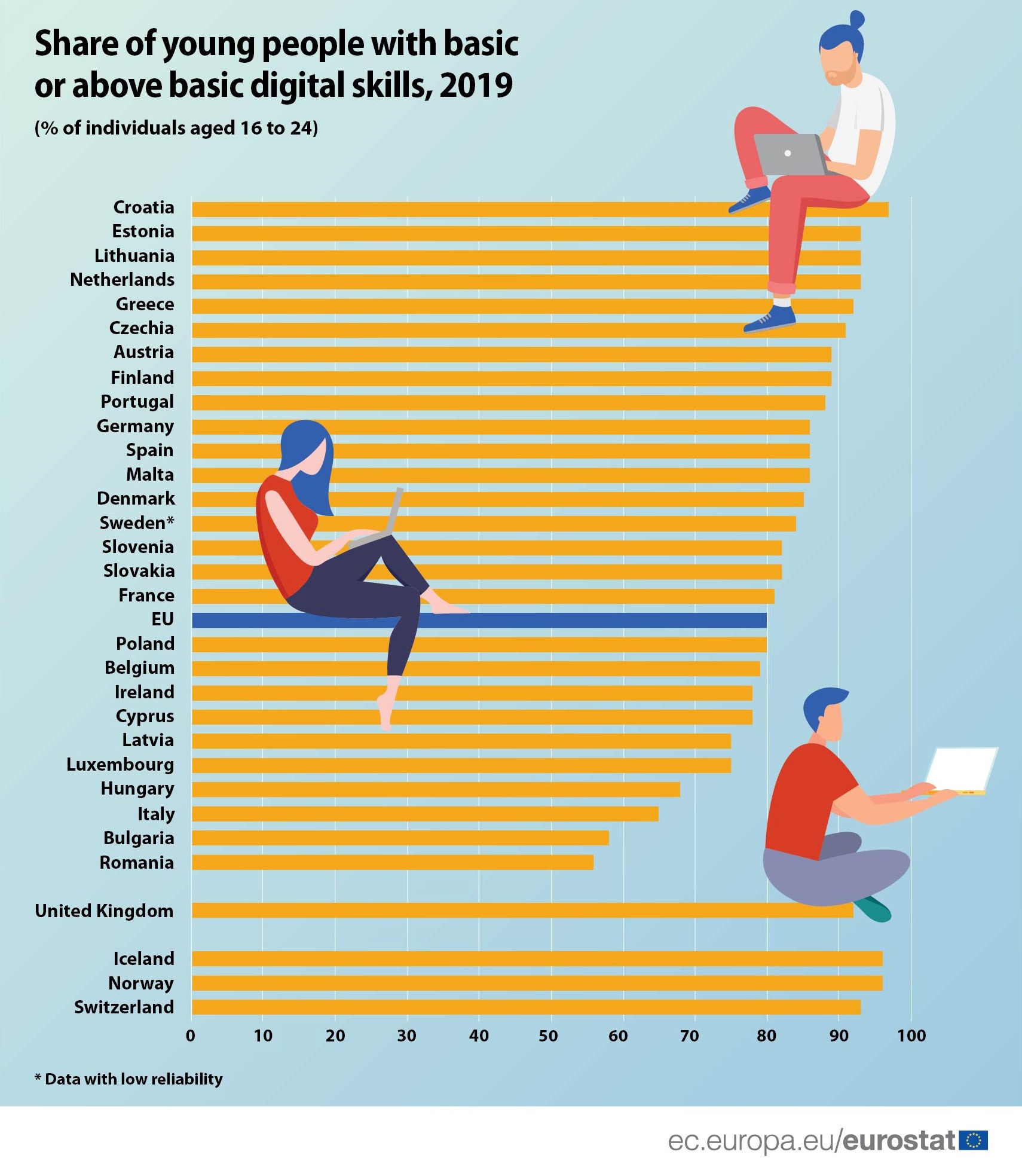Over recent months, many young people (aged 16-24) have had to follow online classes, as lockdown measures associated with the COVID-19 pandemic have prevented their schools, universities, or other vocational and training institutions from running face-to-face teaching. Given these circumstances, one might wonder, do young people have the necessary digital skills to access these services online?
In 2019, four in five young people (80%) aged 16 to 24 in the European Union (EU) had basic or above basic digital skills. This was 24 percentage points (pp) higher than the share of individuals aged 16 to 74 (56%).
Source dataset: isoc_sk_dskl_i
Among the EU Member States, Croatia had the highest share of individuals aged 16 to 24 with basic or above basic overall digital skills (97%), followed by Estonia, Lithuania, and the Netherlands (all three 93%) as well as Greece (92%).
By contrast, the lowest shares were observed in Romania (56%), Bulgaria (58%), Italy (65%), Hungary (68%), Latvia and Luxembourg (both 75%).
For more information: Eurostat has published 2019 data for the Community survey on ICT usage in European households and enterprises; the full data set from the survey is available here.
This news item marks World Youth Skills Day (15 July).

